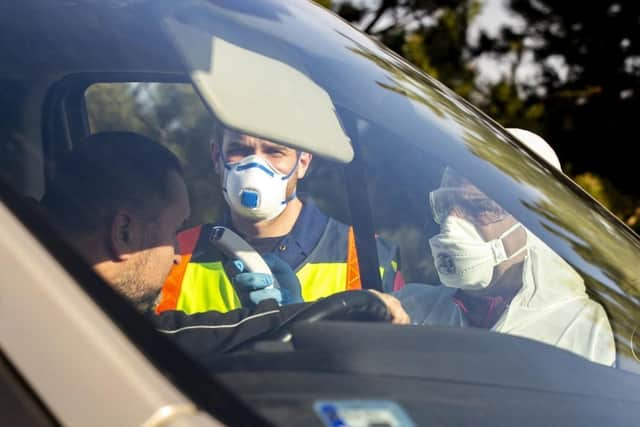We need evidence say worried bosses
and live on Freeview channel 276
The British Chambers of Commerce (BCC) has submitted a freedom of information request to the Business Department to determine what evidence base, if any, was used to inform Government guidance on the closure of businesses from November 5.
The business group urged the Government to publish its approach to national coronavirus restrictions in England without delay, providing firms with at least one week’s notice ahead of December 2, when the current lockdown is due to end.
Advertisement
Hide AdAdvertisement
Hide AdMinisters are also urged to provide scientific evidence for any continuing restrictions on specific business sectors.


The BCC said it wants to see an economic assessment of the impact continued business restrictions and closures are having on communities and the wider economy.
The Government is also pressed to explain why businesses in a number of sectors have been forced to close despite taking “considerable steps at huge expense” to comply with Covid-secure guidance, including leisure, non-essential retail and beauty.
BCC director-general Adam Marshall said: “Nine months into the pandemic, business communities are still crying out for timely information and a clear strategy from Government so that they can survive and rebuild.
Advertisement
Hide AdAdvertisement
Hide Ad“Delays and imprecision mean people lose their livelihoods. Firms are taking difficult decisions every day about their futures, and are tired of being left to rely on speculation and rumour.
“The Government must urgently set out the exit plan for the end of national restrictions in England on December 2 and make it crystal clear which businesses can operate, and under what conditions.
“Businesses have played their part by working hard and spending hundreds of millions of pounds to become Covid-secure, in line with official guidance.
“We must see the evidence for why many were forced to close again on November 5 and absolute transparency on what may happen from December 2.
Advertisement
Hide AdAdvertisement
Hide Ad“Business communities – whether in England, Scotland, Wales or Northern Ireland – cannot take another year of rushed stop-start restrictions from governments while vaccines are rolled out.”
Warren Smyth, chief executive of Abbeycroft Leisure, a not-for-profit social enterprise that oversees 19 leisure and fitness centres across Suffolk and employs around 600 people, said: “We are planning to open on December 3.
“Our staff, services and facilities are lined up to reopen at that point. If we get a change of tack the day before, the impact on business and customer confidence will be significant.
“We have worked hard to support our customers to keep healthy and active, which is even more important than ever this year.
Advertisement
Hide AdAdvertisement
Hide Ad“We need clarity and a plan to help with our recovery and the future health of both our communities and our businesses.”
Meanwhile, UK inflation bounced higher last month as the price of food and clothing jumped, according to official figures. The Office for National Statistics (ONS) said Consumer Prices Index (CPI) inflation rose to 0.7 per cent in October from 0.5 per cent in September.
It surpassed the expectations of analysts, who had predicted that inflation would stay flat at 0.5 per cent for the month.
Deputy national statistician for economic statistics at the ONS, Jonathan Athow, said: “The rate of inflation increased slightly as clothing prices grew, returning to their normal seasonal pattern after the disruption this year.
Advertisement
Hide AdAdvertisement
Hide Ad“The cost of food also nudged up, while second-hand cars and computer games also all saw price rises.
“These were partially offset by falls in the cost of energy and holidays.”
Economists at the ONS said clothing and footwear prices increased by 2.5 per cent for the month, rebounding after a period of heavy discounting as stores tried to attract more customers in the face of restrictions.
Food inflation was another key driver of rising inflation, as prices bounced back from deflation in September.
It was particularly caused by an increase in the price of vegetables and fruit, the ONS said.